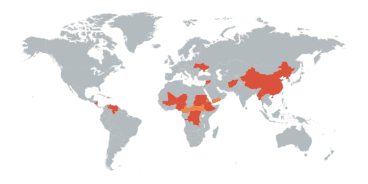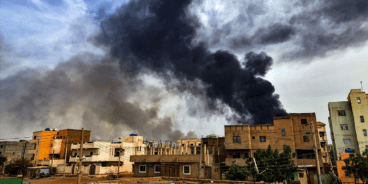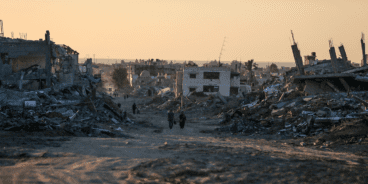
Statement on the anniversary of the civil war in South Sudan
Today marks the first anniversary of the outbreak of civil war in South Sudan. Since the start of the conflict on 15 December 2013, tens of thousands of civilians have been killed and more than a million displaced in an ongoing humanitarian catastrophe.
Over the past year civilians have been subjected to horrific attacks perpetrated by both government forces and armed rebels, including mass extrajudicial killings, ethnic targeting, widespread sexual violence and the recruitment of child soldiers. These acts are a debasement of the founding principles of an independent Republic of South Sudan and constitute possible crimes against humanity.
The arrival of the dry season and the failure of either side to honor previous peace agreements dramatically increases the risk of a return to large scale fighting. Both sides used the May-November rainy season to rearm and recruit in preparation for renewed military offensives. This month has already seen the most sustained armed hostilities since May. There are strong indications that recent fighting in Jonglei, Unity and Upper Nile states will continue to escalate.
The risk to civilians is compounded by the ethnic dimension of the conflict, which has increased tensions between the Dinka and Nuer, and by a pervasive culture of impunity that has left previous atrocities unpunished. There is also a looming threat of man-made famine.
Over the past year the international community has made efforts to respond to the civil war. In keeping with the UN Secretary-General’s “Human Rights Up Front” initiative, the UN mission in South Sudan (UNMISS) immediately opened their bases to those seeking protection, with approximately 100,000 civilians still taking refuge at these sites.
The UN Security Council also acted rapidly, authorizing a troop surge on 24 December. The Intergovernmental Authority on Development (IGAD) facilitated a 23 January 2014 Cessation of Hostilities (COH) agreement and continued to engage with both parties even after this agreement was routinely violated. The African Union (AU) also established a Commission of Inquiry to investigate mass atrocities and determine accountability.
But this is not enough. Despite these actions, both sides continue to seek a military solution to the conflict. The UN Security Council and IGAD have previously threatened to impose sanctions if the COH was not honored, but neither has followed through on these warnings.
The international community cannot stand by and allow fighting to continue to escalate and further atrocities to be
committed. In keeping with the Responsibility to Protect, we urge:
The UN Security Council
— to immediately impose an arms embargo as well as targeted sanctions against political and military leaders responsible for the ongoing hostilities and the perpetration of mass atrocity crimes;
The AU Commission of Inquiry
— to release its report on systematic and widespread human rights violations as the first step in a process of accountability.
“Today is a moment to reflect upon the catastrophe that has befallen the world’s youngest state,” said Dr. Simon Adams, Executive Director of the Global Centre for the Responsibility to Protect. “Both the government and the rebels have failed to uphold various peace agreements and failed to uphold their responsibility to protect their people from mass atrocities. Now the UN Security Council must act.”
Related Content


